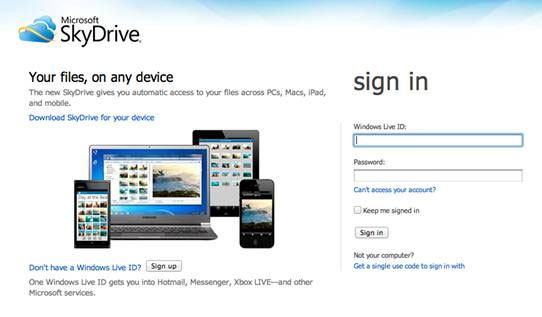10 good reasons to use SkyDrive
Not only simple and easy to use, SkyDrive also provides some convenient features for sharing and accessing data files on compatible devices wherever there is an Internet connection.
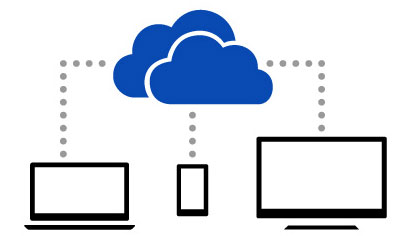
Easy to use
This is one of the most simple and effective data storage solutions on "cloud computing" , it is suitable for both personal and business users. By integrating this service in office applications such as Office 2010 , 2013 and Office 365 , file sharing only needs to be done through a few operations.
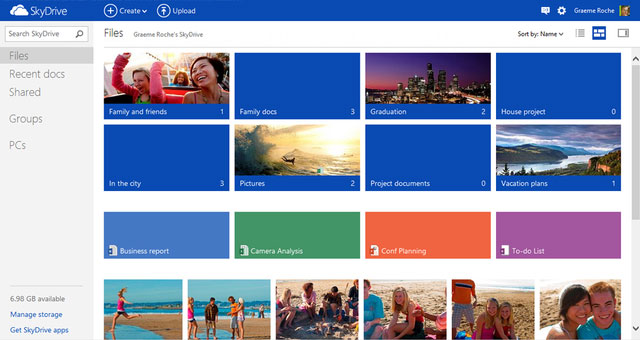
Access is also the same, not only at home, but also at the office, you can work with the data thanks to its synchronization capabilities. Besides computers and mobile devices you use, SkyDrve only requires 2 things: Internet connection and a Microsoft account. If you don't have an account, Microsoft Office will help you sign up for the first time saving a text file into SkyDrive through the instructions on it.
Quick installation
In Windows 8 , with an existing Microsoft account, you can log in to SkyDrive and use it without downloading and installing like other applications. In Windows 7 , after logging in to the service from the home page https://login.live.com or go directly to the address http://windows.microsoft.com/en-us/skydrive/download#apps You can download the desktop application and install it via a few clicks. SkyDrive is now ready in Windows Explorer, you don't need to work from within the Office application.
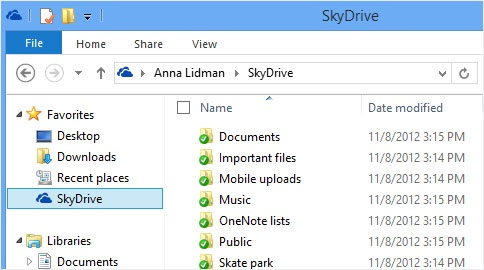
Fast access
Accessing files in SkyDrive is just a click away once you Pin the app icon or website down to the Taskbar below by dragging and dropping. In particular, if you are using Internet Explorer 9 or a newer version, simply go to the Tools menu and select Add Site To Start Menu to add SkyDrive to the Start menu.
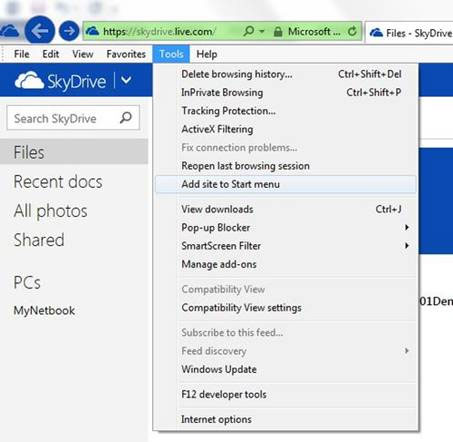
Support multiple platforms, more services
By combining Web Office Apps with cloud storage, you can access your files anytime, anywhere using any compatible device. SkyDive supports all browsers and platforms such as Windows, Mac, Linux, Android and Windows Phone. It will help you share appointments, work schedules and jobs right on your mobile devices. The following comparison table will show us the level of competition of current cloud storage services.
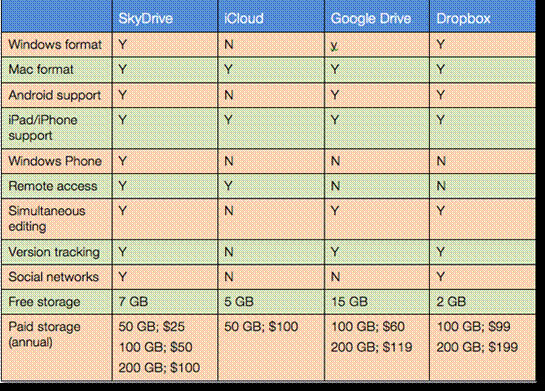
Large storage capacity
While it can't be compared with Google Drive, but with 7 GB of free usage, you'll take advantage of a portable drive with lots of data in it. It is necessary for you to store, share files with colleagues or help them access data from another location. At home, you can save photos, music, videos . The cost to upgrade to larger storage space is not too high, but most users will not need more than the free capacity provided. level.
Support editing directly on the Internet
When sharing a file on SkyDrive, you and anyone else you share can view and edit the document using Office Web Apps. In particular, the free versions of Word, Excel, OneNote and PowerPoint all run well on the Web browser and save to SkyDrive by default. Although these applications are limited, it is more than enough to work with documents on the network without installing any additional software.
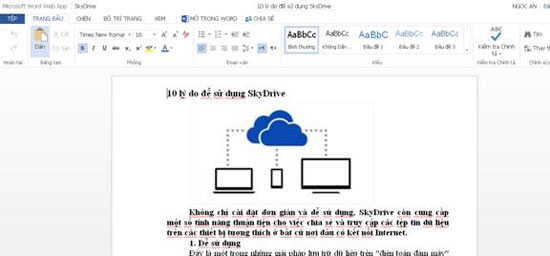
Simultaneous sharing
Files stored on SkyDrive will be accessed by multiple users at the same time. With Office Web Apps, many users can edit files simultaneously and changes are saved instantly.
Tight security
Whenever working online, security is always a matter of most concern. The first security layer on SkyDrive is its structure. The service allows you to identify who can view and edit files when sharing a document. The good news for users is that, for people with data sharing who do not need an account and password to view your file, the links they receive when you invite will contain all the information they need.
Support for third-party add-ons
Office Web Apps lets you view and edit documents online, but you can't work with other file formats. For example, we can store and share a PDF file, but we can't open it using Office Web Apps. Then a third-party product ( http://windows.microsoft.com/en-us/skydrive/apps-that-work-with-skydrive#t1=windows ) will be ready to work with file types not Microsoft in this cloud computing service.
Remote access
The SkyDrive Desktop app also adds easy drag-and-drop functionality to your local drives with SkyDrive service. When not sitting on a computer, you can grant access to another person. But to be more secure, or in case you forget to download the file, SkyDrive Desktop will help you access the remote system.
